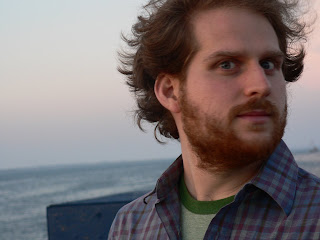Last night, half inspired by somewhat recent reading from THE GRAND PIANO memoir, I started reading aloud bits of Zukofsky's A to Farrah. I haven't before spent much time on the poem overall and was drawn to section 22 (the source of a well-remembered group reading from the 1970s in the bay area) where the poem suddenly switches gears into quasi-Latin/Elizabethan drama, repelete with characters out of Plautus or somesuch--A dramatis personae leading the way. Farrah referred to the changeover as 'disconcerting,' a comment which I think unpacks a certain set of assumptions about poetry and the 'lyric' having to do with the voice being A voice or at least Assumed Voices, the line containing a certain set of materials existing in a certain plane vis a vis the rest. And by contrast this move - one might call it "experimental" though I suppose the experiment must have passed a while ago from the preliminary findings stage to peer review - seems to explode such readings and demand a constantly replenished reading, as if such useful things as genre had not yet come into existence. Still, what does it DO for the work to move like this? I think of the Circe chapter from Joyce's Ulysses for an analogue and I suppose the experience of reading a screenplay as novel (Farrah has shown me a YA novel doing just this) might cause similar parallax reactions, concretizing the language while at the same time destabilizing this character-colon effect. Just words? Just peoples?
I picked up a copy of Paul Killbrew's newish, pretty chapbook Inspector vs Evader at McNally Robinson a few days ago and was very struck by the similar principle of re-evaluation line by line, as Killebrew constructs the long poem out of interlocked but not necessarily contiguous voices in a series of end-stopped lines coinciding with but not necessarily equal to sentences. What is the difference between the line and sentence? Who is it now? I sometimes feel that tug when writing: you press the enter key and everything can be different now. Cliche: this is the first day of the rest of the sentence. And yet there's all this baggage. (I remember, after meeting Paul Killebrew at a reading last year I ran into him a few weeks later in the Jetblue terminal at JFK, though not specifically in the baggage claim...) His book is I think a bit about the question: what am I doing and what do I do now. Which is a good question to be asking yourself or having someone ask you. (But which is it? How would you tell?)
In the Simpsons movie which I just got home from seeing, there is a very funny scene when Homer slogs endlessly by himself through a wasteland, tireder by the step, monologing like a Beckett character: "I can't go on I must go on Shut up No you shut up I can't stand you" etc. My father, with whom I've been on exhausting bike and ski rides countless times, was practically hyperventilating with identification. And who was Homer talking to when Homer was talking to Homer? I imagine the screenplay, just as I read Paul Killebrew's also funny chapbook. Aloudness counts for something; printed pages are very, very flat.
Subscribe to:
Post Comments (Atom)

No comments:
Post a Comment